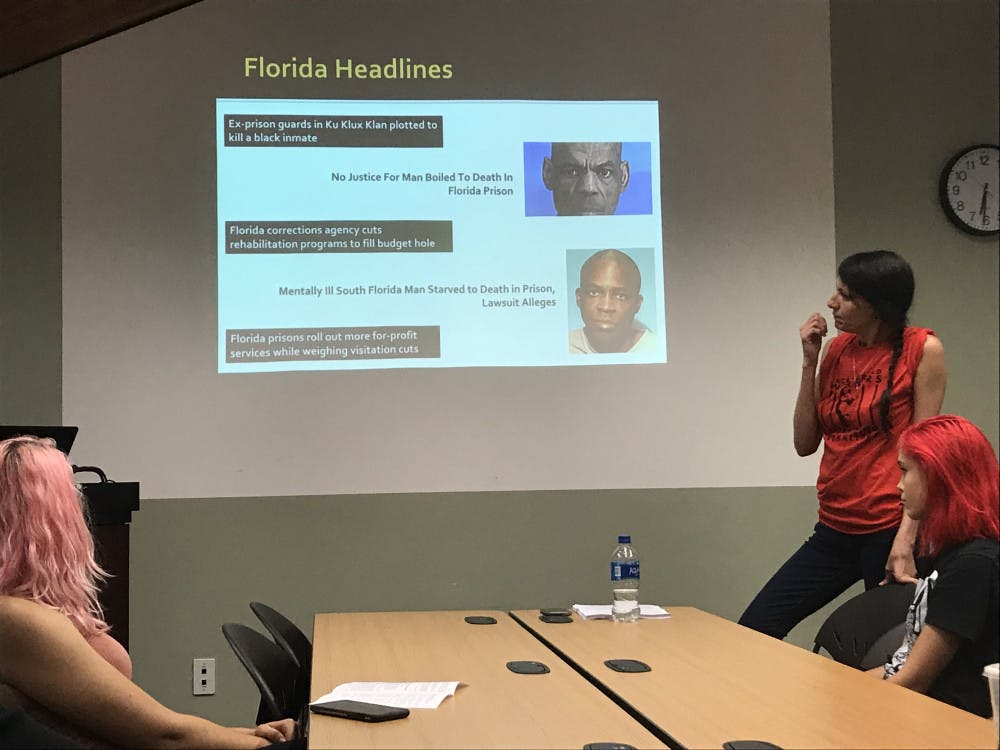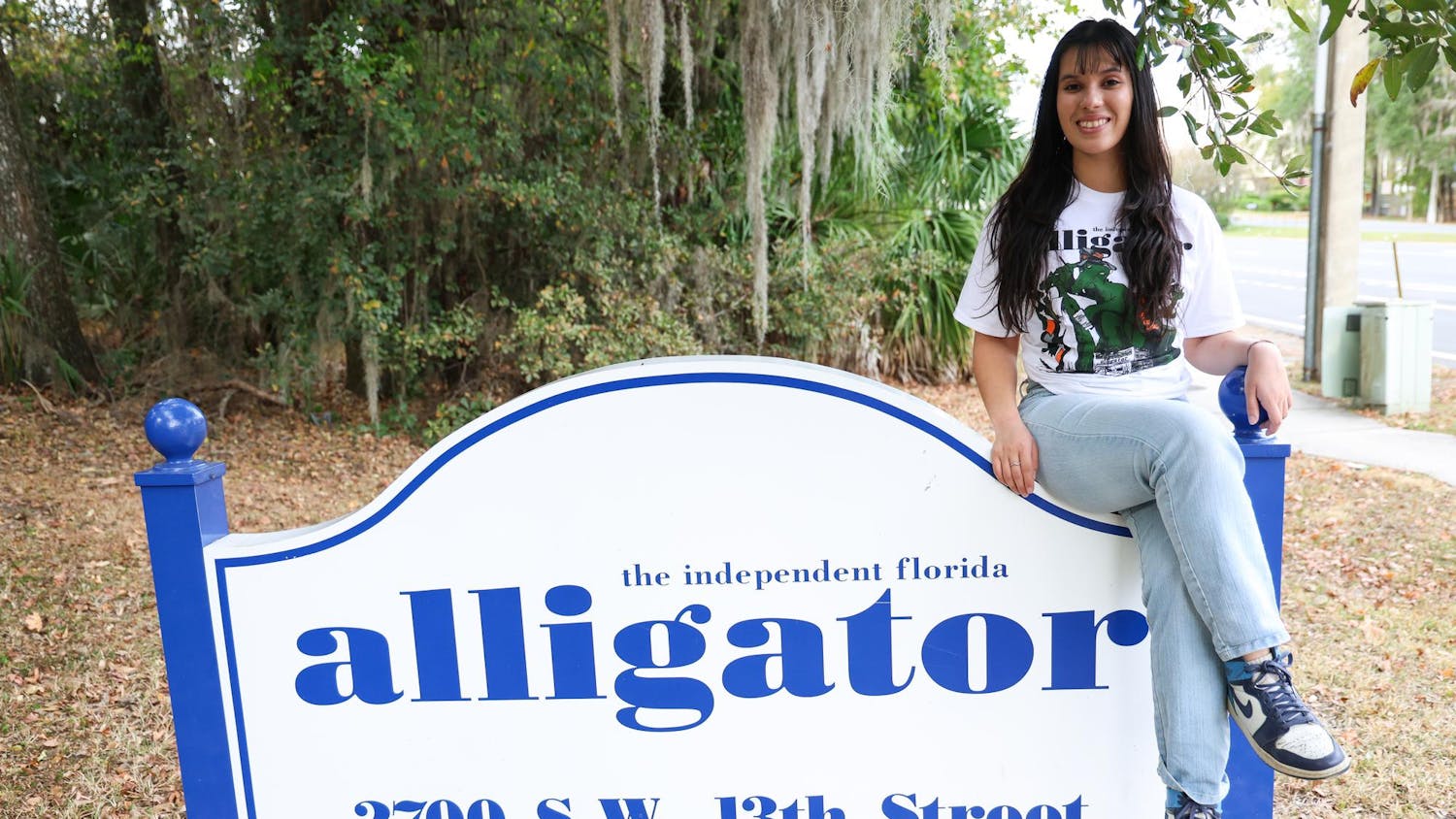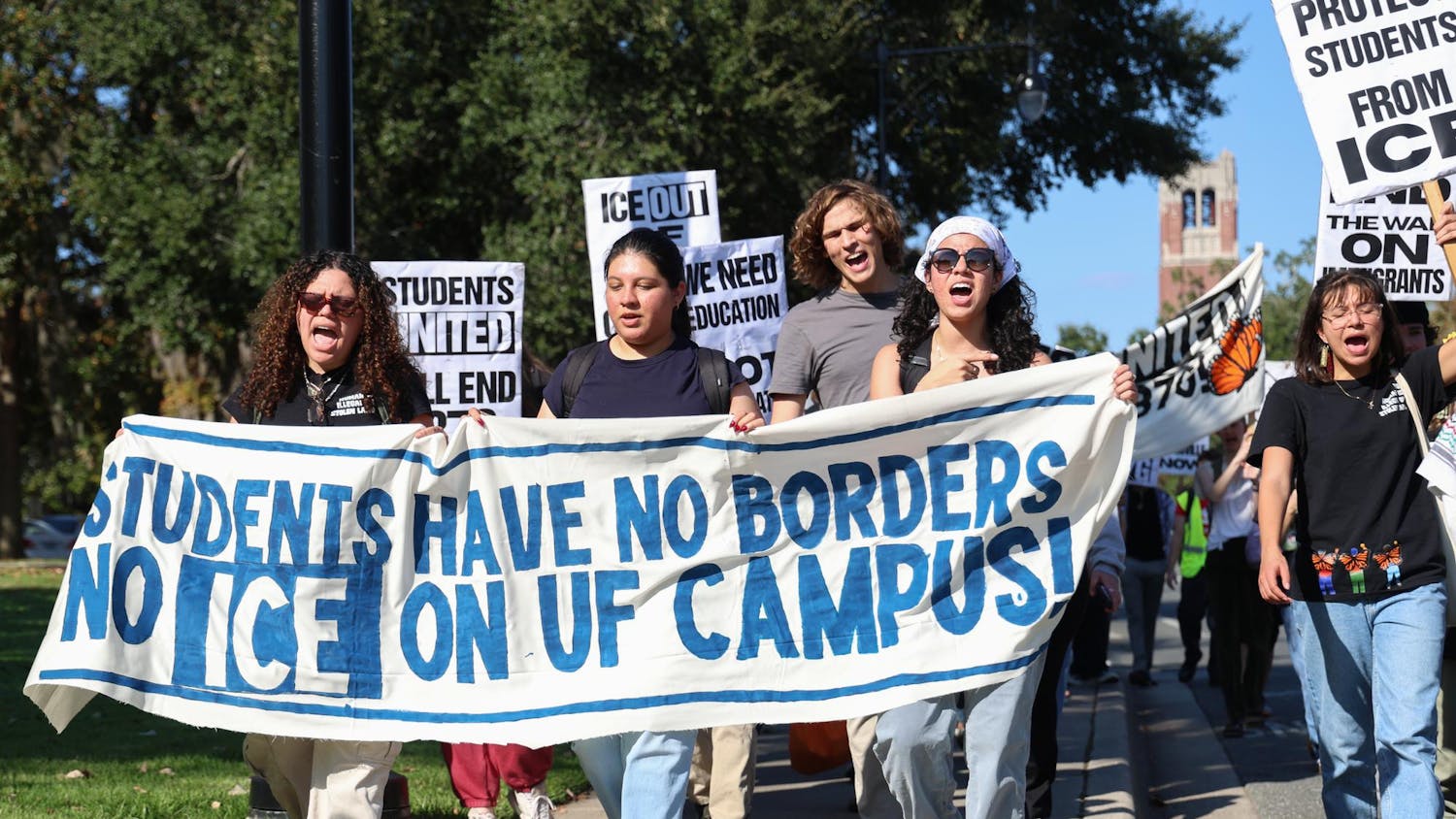From inside his prison cell, Kevin would put his hand over someone’s traced handprint, feeling where they had been.
Kevin, who declined to provide his full name, was incarcerated in multiple Florida prisons for about three years. He said he and other inmates used to exchange letters with people on the outside, sending handprints back and forth so they could feel more human.
On Tuesday, prisoners around the country launched a week-long prison strike to push for better prison conditions. The Gainesville chapter of Incarcerated Workers Organizing Committee and Fight Toxic Prisons held an information session at the Alachua County Headquarters Library on Monday evening to teach the community about how they can participate in the strike.
Inmates compiled a list of demands including improved living conditions, more access to rehabilitation programs and an end to “prison slavery,” said Karen Smith, secretary of the Gainesville IWOC.
The strike is a response to the violence that plagues America’s prisons, she said. An incident in April was the catalyst, when seven inmates were killed during a prison riot at Lee Correctional Institution in South Carolina.
“It’s like a powder keg,” Smith said. “This kind of violence happens all the time, we just don’t hear about it.”
Inmates will strike in four ways, she said. How they choose to strike depends on the risks of each option. Prisoners can boycott the commissary, a store inside the prison or participate in hunger strikes and sit-ins.
They can also stage work strikes, Smith said. During a work strike, prisoners won’t report to their assigned jobs, where they’re paid very little or not at all. One of the demands listed asks that prisoners be paid at least the minimum wage in their state.
Shelby Shoup, an education junior at Florida State University, traveled from Tallahassee to show her support for the strike and learn how to participate. She feels that work strikes are the most effective means of protest.
“Labor is the source of it all,” she said. “If you stop production, you stop it all.”
Smith also invited attendees to participate in phone zaps, where people flood the prisons with phone calls advocating for the demands of the inmates, she said. The group hosted a phone zap Tuesday as well as a protest outside of the Gainesville Work Camp.
About 20 people gathered outside the work camp on Northeast 55th Boulevard on Tuesday morning for the protest. They had banners, bullhorns, cow bells and loud chants, said Juan Zapata, a UF electrical engineering senior who participated in the protest.
“I see prisons and prison labor as another method of capitalism exploiting us,” Zapata said.
Contact Jessica Curbelo at jcurbelo@alligator.org and follow her on Twitter at @jesscurbelo
Representatives from Gainesville Incarcerated Workers Organizing Committee and Fight Toxic Prisons listen while an inmate speaks over the phone.






